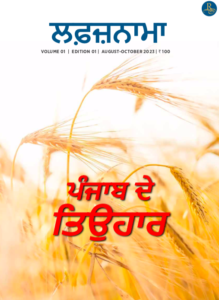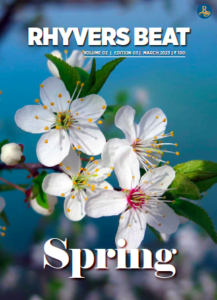OF CINNAMON WORDS & EARWORMS: YOU CAN’T GET ENOUGH OF THEM

A five-year-old child was singing a popular number and was grooving to the same, totally impervious of the lewd lyrics. As an adult, I checked her and asked her not to sing the song. Ten minutes later, to my utter disbelief, I found myself humming the same lilting number and despite conscious effort could not put it out of my mind. It had become my ‘earworm’ of the day. A friend once shared a similar experience. The garbage truck that came to collect waste from the sector played a dedicated jingle along its route. The friend one fine day realized that she was humming the ‘garbage truck jingle’ despite its unsavory lyrics.
Scientists call an ‘earworm’ by different names– Stuck Tune Syndrome, Musical Imagery Repetition, Involuntary Musical Imagery, etc. However, the credit to coin the innovative term ‘earworm’ goes to the Germans who invented the idea about a hundred years ago and called it ‘öhrwurm’. On a regular day, it happens perhaps with all of us that we are reminded of a favorite song, tune, or jingle that stays with us through the day and gives us a pleasant feeling, often leaving a smile in the trail. Contrary to such sweet remembrance, is the earworm. Dr. Oliver Sacks claims, “This is a special form of involuntary musical imagery which is out of control and can become quite unpleasant and intrusive.” TV and radio jingles often have the tendency to become earworms as the advertisers put in a lot of efforts to create them such. I often catch myself crooning yesteryear’s commercial aired for Bajaj Electricals,
Jab main chhota bacha tha, badi shararat karta tha
Meri chori pakdi jaati, jab roshan hota Bajaj!
It does have a feel-good factor to it, yet it has the predisposition of becoming an ‘earworm’ for better or for worse.
What ordinary people feel about songs and jingles, writers feel for words. Certain words, phrases or expressions when tend to become favorites with an author, he or she repeats them involuntarily in writing. Such words are called ‘Cinnamon words’. The term owes its origin to author Ben Blatt, who discovered that author Ray Bradbury was fond of using the word ‘cinnamon’ in most of his works as it reminded him of his grandmother’s pantry.
Blatt in his book titled ‘Nabokov’s Favorite Word is Mauve’ makes a strategic analysis of a number of authors and their writings and suggests some repetitive phrases and words used by them. This reminds one of Gogol’s immortal protagonist Akaky Akaievich from his not-so-short story ‘The Greatcoat’. Akakievich, who is a copy clerk loves to make copies of important letters and the author says,
“His face would take on an expression of pleasure; certain letters of the alphabet he particularly favoured and if he encountered them he would be quite beside himself: he would chuckle and wink and mouth sounds, so that it was possible to read in his face every letter described by his pen.”
Writers and poets, similarly, have penchant for some specific words and expressions. The proclivity can be ascertained to various causes- professional, physical, geographical, familial or emotional. While professional reasons to like particular words is evident from the fact that one tends to imbibe a lot of profession-related jargon in one’s day-to-day communication which subsequently makes way into one’s writing. Many words and expressions are essentially related to the place or region where one grows up. In literature, these are termed as ‘colloquial’ and writers often, inadvertently, repeat these words in their writings.
Some expressions run into the family and are handed down from one generation to another resulting in a natural inclination towards them. At times, the writer may like the sound of a particular word or the way it is produced. The phonology of the word forms a major physical cause for the repetition of words. However, ‘cinnamon words’ most closely relate to those words with which the writer has an emotional affiliation; words that remind of some individual, memory or experience. If you, too, are an author or a poet find out if you have been unconsciously indulging in ‘cinnamon words’!















